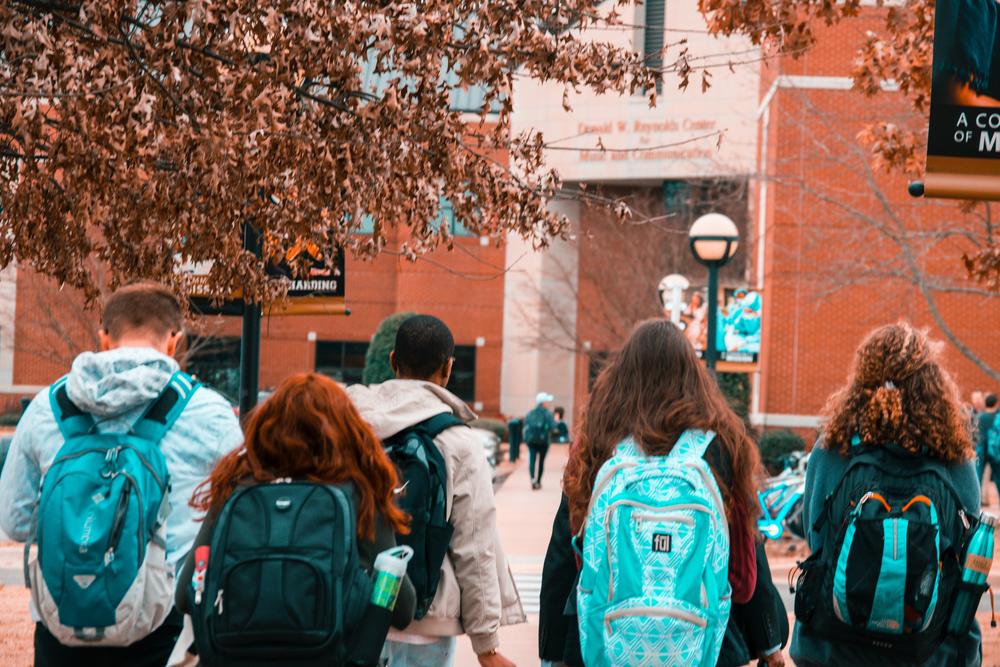
Section Branding
Header Content
School spending, enhanced HOPE and vouchers on minds of Georgia lawmakers in session’s final days
Primary Content

Georgia students and families could see big changes to their public schools this year as lawmakers continue work on numerous education bills that pump more money into classrooms, sweeten the HOPE Scholarship and expand school vouchers.
But as the chill of winter gives way to the pollen-coated warmth of spring, time is running short to turn these bills into laws. March 29 is Sine Die in Georgia, the final chance for state lawmakers to send legislation to the governor’s desk before heading back to their districts for the year.
Here’s a look at what could be coming out of the final, frantic days of the legislative session.
Money
On Thursday, the House passed its version of the proposed $32.5 billion state budget, which, if approved by the Senate and signed by Gov. Brian Kemp, would dedicate $13.1 billion to state K-12 funds.
Teachers and other school workers are set to receive a $2,000 raise along with all other state employees.
House Appropriations Chair Matt Hatchett said the House plan will fully fund the state’s share of the cost to educate each of Georgia’s 1.7 million public school students, known as quality basic education, or QBE.
Some education heads were hoping for changes to QBE this year after a special Senate committee took testimony last year about updating the circa 1985 formula.
Some Georgia education policy watchers say it’s time to incorporate a poverty weight into the formula, allocating extra dollars to students growing up poor. Georgia is one of six states that does not do so.
Atlanta Democratic Sen. Jason Esteves on Thursday introduced a bill to change that. The deadline for a bill to easily cross from one chamber to another passed before Esteves filed his bill, but it will still be active when the Legislature reconvenes in January 2024.
Hatchett said the House budget incorporates other spending dedicated to children from lower income families, including $6.3 million set aside for students on free-and-reduced lunch, which he said will pay for free breakfast for 32,000 students and free lunch for 64,000.
The HOPE Scholarship proved to be a sticking point in the House budget. Republican leadership rejected Kemp’s proposal to fund the scholarships at 100% of tuition. They want to reserve the full ride for Zell Miller Scholarship recipients, who must meet more rigorous requirements, and fund HOPE at 95%, up from 90%, and spend the difference boosting HOPE for students who attend private schools.
Atlanta Democratic Rep. Stacey Evans voted to approve the budget along with the rest of the chamber’s Democrats, but she urged her colleagues to consider funding the full amount when the House and Senate enter budget negotiations.
“We have the money to return the full promise of HOPE to all of our HOPE scholars, not just those with a 1200 SAT score,” she said.
Republicans said fully funding HOPE would dishonor the hard work of Zell Miller scholars, and argued that 95% funding leaves families paying very little.
One of the most significant open questions this session is whether the House will pass a Senate measure to expand school vouchers in Georgia.
Cumming Republican Sen. Greg Dolezal’s bill, which passed the GOP-controlled Senate on a party line basis, would pay public school parents in the state’s lowest performing schools $6,000 to educate their kids elsewhere.
“I know that all of us love our kids, and I know if I were to ask all of you, do you think you can make the best decision for your child, every one of you would say yes,” Dolezal told his colleagues. “Let’s trust the rest of Georgia parents to do the same.”
Republican-led states have been expanding school vouchers, arguing that they give students a way out of schools that do not meet their needs.
Opponents say vouchers take dollars from underfunded public schools and funnel them to unaccountable private schools.
Abigail Harris, a Forsyth County high school senior, was part of a group of students from the Georgia Youth Justice Coalition who met at the Capitol recently to urge lawmakers to vote against the voucher bill.
Harris said she attended a Title I elementary school, part of a federal program for schools with high poverty rates, and a $6,000 voucher would have done very little to help students with few resources.
“The reality of the situation is for kids who were in my situation growing up, it’s not giving us a choice to go to a private school,” she said. “There is no choice. Those private schools don’t exist where we live, and even if they did, $6,000 is not enough to give us that choice. So it’s ultimately just robbing us of the opportunity to have a fully funded classroom by providing an excuse of why you haven’t funded that classroom.”
The average private school tuition in Georgia is $11,541 per year, according to Private School Review, and prices range from $1,042 to over $57,000.
School Safety
A Kemp-backed bill designed to shore up school safety appears poised for passage this year. It made its way through a Senate committee last week with no opposition after a slightly rockier passage through the House.
The bill would institute a school safety and anti-gang training program for teachers, encourage colleges and universities that train teachers to include safety and anti-gang lessons in their lesson plans, mandate schools to submit their safety plans to the Georgia Emergency Management Agency and require all schools to hold an annual intruder alert drill.
It passed the House 148-20, with some Democrats opposing the bill because they said it could cause unnecessary distress in students and does not address gun access.
Dallas Republican Sen. Jason Anavitarte is hoping the House will pass his bill, titled Alyssa’s law. Named after Alyssa Alhadeff, a student who was killed in the 2018 Parkland, Florida shooting, the law would require Georgia schools to purchase silent alarms to alert police in case of emergencies. Similar laws are on the books or are being proposed in other states.
Anavitarte said the bill does not supply funds for purchasing these devices, but he said some districts already use them, and schools that do not are likely to receive grant money they could use to buy them. Kemp’s proposed budget includes a $50,000 grant to every school in the state to be spent on safety measures.
Literacy
At the start of this year’s session, Senate GOP leaders listed boosting Georgia kids’ literacy rates as their top education priority for the year.
Results from 2022’s Georgia Milestones test show 36% of third grade students reading below grade level.
Statesboro Republican Sen. Billy Hickman is lead sponsor of a bipartisan bill setting up a Georgia Council on Literacy with 24 members appointed by the governor, president of the Senate and House Speaker.
The council would be responsible for collecting data and publishing yearly recommendations for improving literacy among Georgia students, including for second-language English speakers, students living in poverty and students with dyslexia.
Hickman’s bill passed the Senate unanimously and awaits a House vote.
The House unanimously approved its own literacy bill, written by Warner Robins Republican Rep. Bethany Ballard.
The bill focuses on kindergarten through third grade reading, calling on the state Board of Education to provide a free literacy screening tool, as well as create guidelines for teacher education programs.
Other noteworthy education bills still in play:
- HB 51 would allow districts to transport students to and from schools in vehicles other than buses, including marked vans.
- HB 338 is dubbed the Student Technology Protection Act and requires local school boards to establish procedures for preventing access to obscene materials on school devices.
- HB 340 seeks to help with a common teacher complaint by mandating a paid daily planning period to do things like grade and plan assignments without having to supervise students.
- HB 402 requires school districts to provide parents with information about water safety.
- SB 4 authorizes districts to provide instruction in Braille to blind or visually impaired students and requires textbook publishers that deal with the state to provide their materials in a format that can be converted to Braille or synthesized speech.
- SB 45 requires schools to accept, maintain and review seizure action plans submitted by parents of children who have seizure disorders.
- SB 50 would allow high schools to offer lessons in water rescues that would allow students to work as lifeguards upon completion.
- SB 170 would allow one high school junior or senior appointed by the governor to serve in a limited role on the state board of education and encourages local boards to do the equivalent.
- SR 175 would create a study committee to examine expanding the state’s dual enrollment program to younger students. Dual enrollment allows sophomores or above to take college courses for both high school and college credits.
This story comes to GPB through a reporting partnership with Georgia Recorder.

